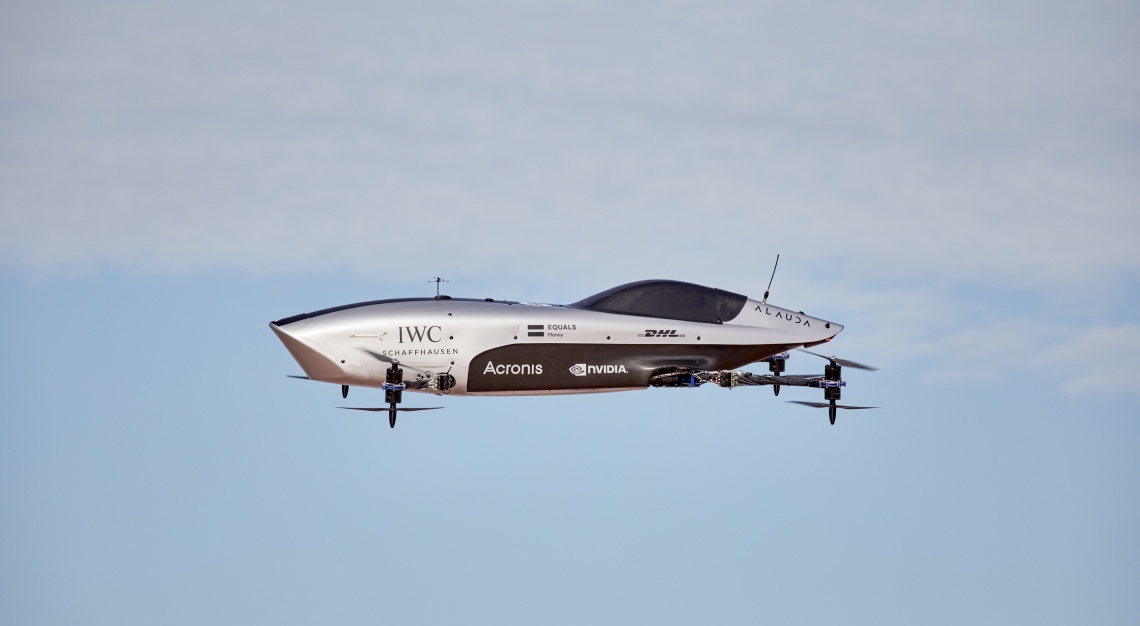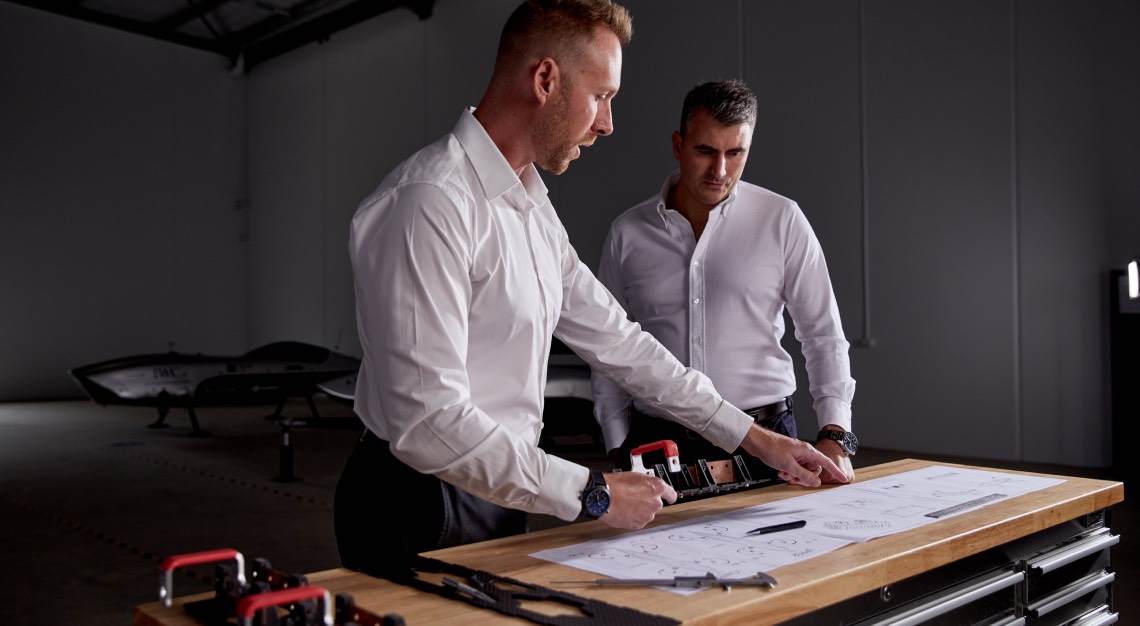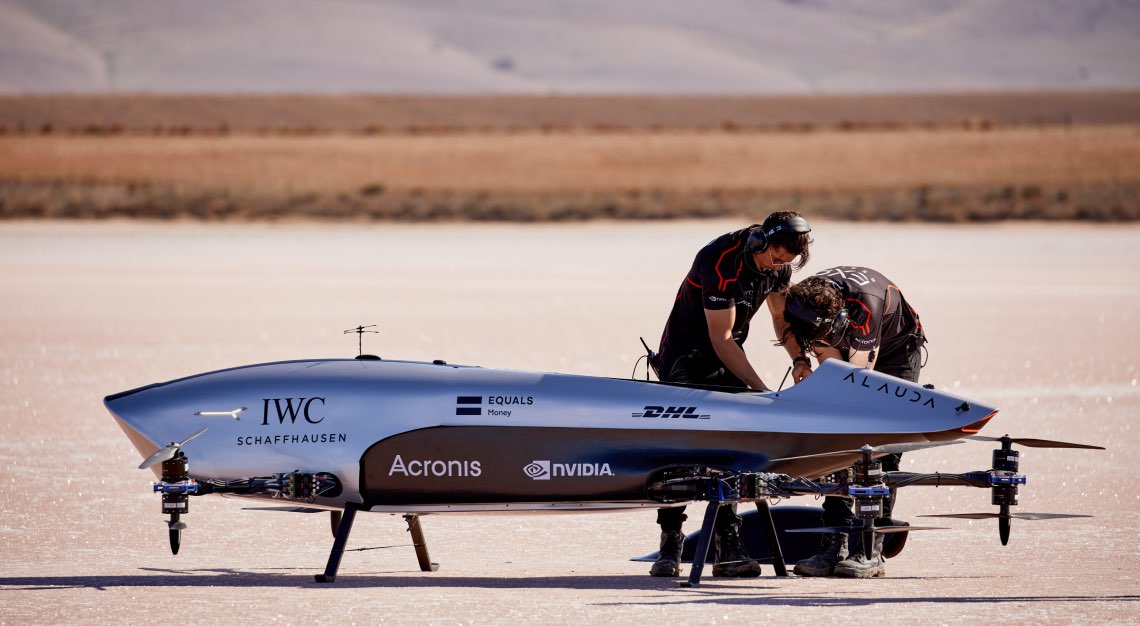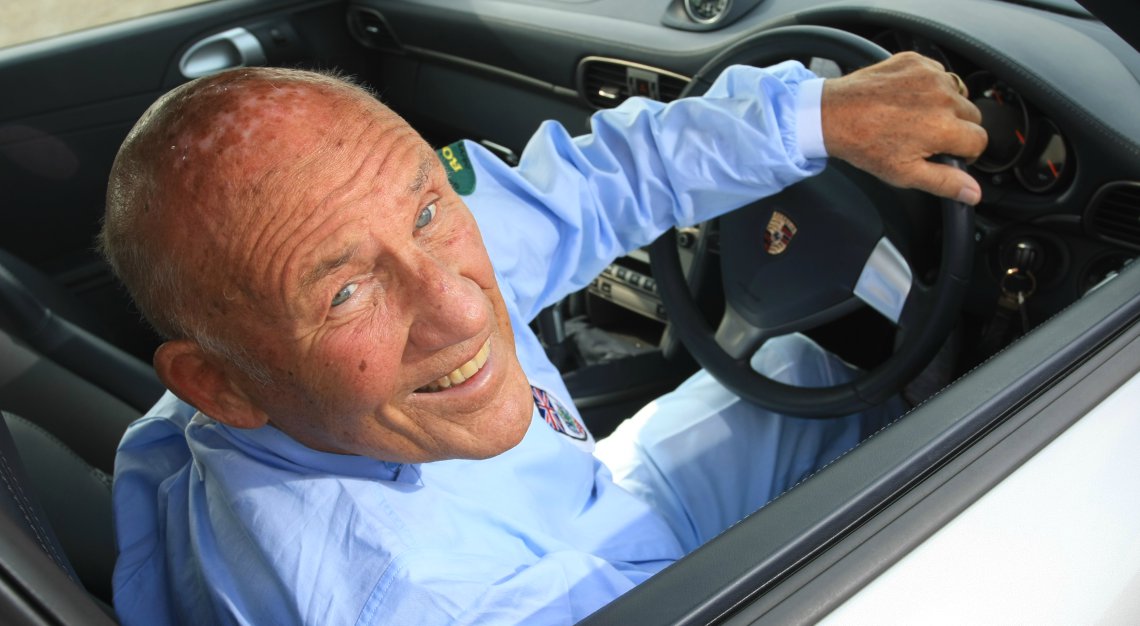The race will begin later this year with pilots controlling the cars remotely. If all goes well, a piloted series will be scheduled for 2022
Life is short, and in some strange, morbid way, this knowledge of our mortality is what compels us to push forward, work harder and dream bigger. It is what drives us to invent new vaccines, plant-based meat and the dreamiest of science-fiction dreams – the flying car.
Making this dream a reality is Matt Pearson, the founder of Airspeeder, the world’s first flying electric car racing series that’s now in partnership with Swiss watchmaker IWC Schaffhausen; they both share the same love of engineering, aviation and motorsport, and the vision to fast-track a new era of clean-air mobility. The series, which is reminiscent of pod racing in Star Wars, should take place later this year at three locations across the globe. They will all be controlled remotely, and if all goes to plan, a human-piloted series will be scheduled for 2022.

Call his bluff, but in June, the Airspeeder Mk3 (built by Alauda, which was also founded by Pearson) completed its first flight in Australia. Inspired by the racing car of the 1950s, it combines Formula One car dynamics with the profile of a fighter jet and prowess of a helicopter. Built around a carbon-fibre tub and featuring a rotor blade on each of its corners, it can zip from zero to 100km/ hr in 2.8 seconds and fly as high as 500m. It may not be outer space, but you will still feel like you’re at the pinnacle of a new world.
Like flying cars, Pearson is ferociously committed to taking the unconventional path. The secret to his success is restlessness, which to him is a virtue and what brings about the compulsion to explore, create and push boundaries.
Hi Matt, why are you so restless?
It is what drives me to explore new possibilities across all parts of my business life. At Airspeeder, I am inspired by the forefathers of the automotive age – Charles Stewart Rolls, Henry Ford and Karl Benz – who saw racing as the way to build acceptance and innovation for a world-changing technology. We all stand on their shoulders in everything that we do. Their restlessness inspired them to look beyond horizons to make giant leaps forward.
Why is mankind so fascinated with reaching for the sky?
The progress of humanity has always been defined by exploration. The sky is just another horizon we haven’t looked over yet.
What does flying do for you?
I look at the incredible pace of progress that happened between John Alcock and Arthur Brown crossing the Atlantic for the first time in 1919 and the jet age starting just a few decades later. Those pioneers shrunk the world in the best possible way. I look at what’s next in aerial mobility and am so excited at what eVTOL (electric vertical take- off and landing) transportation can deliver. This is already happening in logistics and medicine through bringing supplies to remote locations. Racing will speed up this pace of development.


Why is competition important to you?
It’s not something that’s unique to me. Every moment of progress in history can be attributed to some form of competition. I think Ford put it beautifully when he said: “Auto racing began five minutes after the second car was built.” There is just something within us that wants to go faster and push beyond accepted limitations. Just look at the Schneider Trophy for seaplanes; it helped deliver the freedom of flying by popularising it through racing. This is why people fell in love with aviation and why they will fall in love with flying cars. History dictates that competition hastens progress, so it stands to reason that flying car racing will accelerate the arrival of a world-changing clean-air technology.
Why do we need more ‘different’ in the world? Are rules meant to be broken?
We are not necessarily here to break rules. It’s more about pushing the boundaries and reframing what has been previously seen as possible. I like the idea of contrarianism. Rolls looked at a horseless carriage and decided it could drive at a constant 161km/hr. Alcock and Brown were the same in looking at the Atlantic and flew over it in an incredibly primitive aircraft. This gifted the world the ability to cross continents in a matter of hours. In their own way, they were rule breakers who were possessed to do something different, and the world can only benefit from thinking like this to drive ourselves forward.
This story first appeared in the August 2021 issue. Purchase it as a hard or digital copy, or consider subscribing to us here






